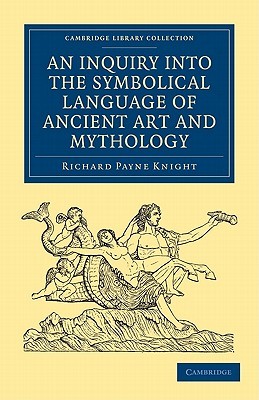
- We will send in 10–14 business days.
- Author: Richard Payne Knight
- Publisher: Cambridge University Press
- ISBN-10: 1108028101
- ISBN-13: 9781108028103
- Format: 14 x 21.6 x 1.2 cm, minkšti viršeliai
- Language: English
- SAVE -10% with code: EXTRA
An Inquiry Into the Symbolical Language of Ancient Art and Mythology (e-book) (used book) | bookbook.eu
Reviews
Description
This influential work of 1818 by dilettante and critic Richard Payne Knight (1751-1824) has stood the test of time. The study investigates the sexual symbolism of the art of different religions, providing a key to the mythology of the ancients and fostering a clear understanding of the canons and principles of art. An eminent art historian, collector and textual critic, Knight led the way in convincing British taste that Roman art was inferior to Greek, arguing that Greek art was the more authentic and original. Here, he calls for more correct versions of Homer, Plato and other Hellenic writers, to obtain accurate perceptions of Grecian ideas. Demonstrating his in-depth knowledge of classical architecture and literature, and drawing upon his considerable resources as a collector, Knight analyses the genetic character of symbols, and the patterns of their occurrence in different cultures.
EXTRA 10 % discount with code: EXTRA
The promotion ends in 22d.14:07:55
The discount code is valid when purchasing from 10 €. Discounts do not stack.
- Author: Richard Payne Knight
- Publisher: Cambridge University Press
- ISBN-10: 1108028101
- ISBN-13: 9781108028103
- Format: 14 x 21.6 x 1.2 cm, minkšti viršeliai
- Language: English English
This influential work of 1818 by dilettante and critic Richard Payne Knight (1751-1824) has stood the test of time. The study investigates the sexual symbolism of the art of different religions, providing a key to the mythology of the ancients and fostering a clear understanding of the canons and principles of art. An eminent art historian, collector and textual critic, Knight led the way in convincing British taste that Roman art was inferior to Greek, arguing that Greek art was the more authentic and original. Here, he calls for more correct versions of Homer, Plato and other Hellenic writers, to obtain accurate perceptions of Grecian ideas. Demonstrating his in-depth knowledge of classical architecture and literature, and drawing upon his considerable resources as a collector, Knight analyses the genetic character of symbols, and the patterns of their occurrence in different cultures.


Reviews